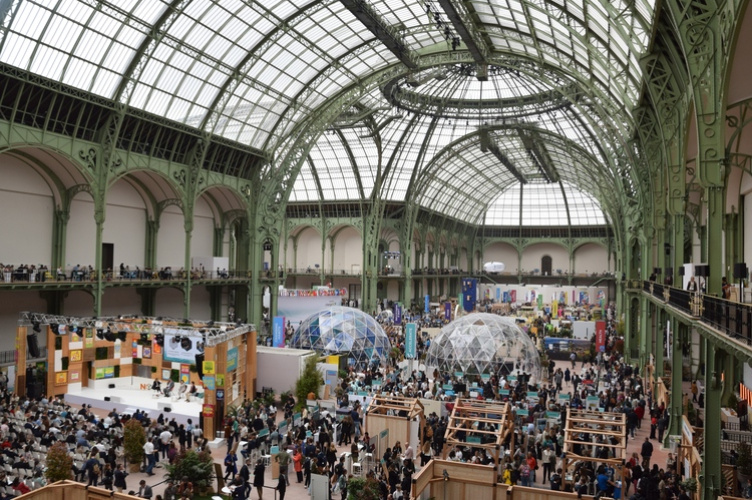From education to action: ESCP's vision for sustainability leadership unveiled at ChangeNOW 2025
"Let’s turn this moment into momentum." With those words, Prof. Léon Laulusa, Executive President and Dean of ESCP, opened the School’s feature panel at ChangeNOW 2025—one of Europe’s largest sustainability summits.
Across three days, from April 24-26, over 40,000 participants from 140+ countries gathered at the Grand Palais in Paris to explore solutions for the planet. ESCP students, staff, alumni, and leadership launched projects, confronted legacy assumptions, and asked a simple but radical question: What does higher education owe to the sustainability transition?
As a core academic partner, proudly supported by the ESCP Foundation, the School had a clear and powerful agenda: to rethink what a business school can be when it fully commits to sustainability in how it teaches, operates, partners, and leads.
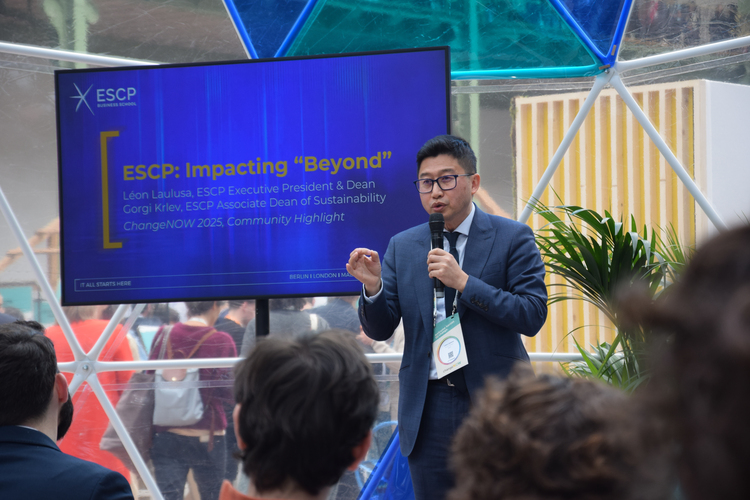 Prof. Léon Laulusa, Executive President and Dean of ESCP opens ChangeNOW Community Highlight event
Prof. Léon Laulusa, Executive President and Dean of ESCP opens ChangeNOW Community Highlight eventCommunity Highlight: “Impacting Society and the Economy Beyond Education and Research”
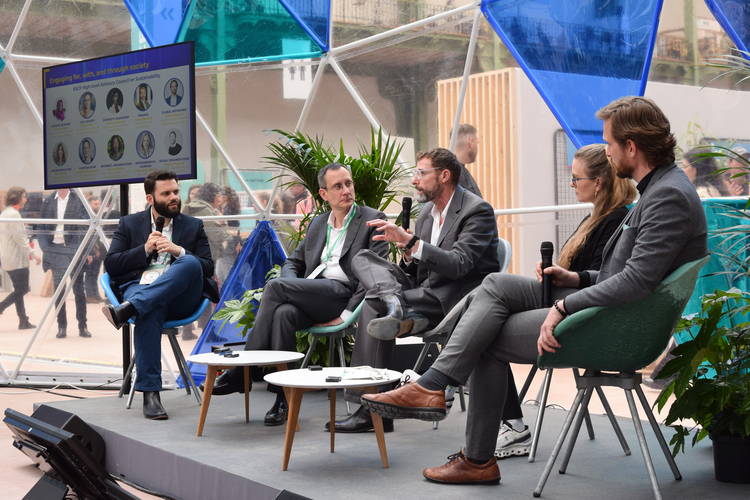 Members of ESCP’s High-Level Advisory Council on Sustainability on stage at ChangeNOW
Members of ESCP’s High-Level Advisory Council on Sustainability on stage at ChangeNOWThe flagship event of ESCP’s ChangeNOW presence was the Community Highlight and panel “Impacting Society and the Economy Beyond Education and Research”, which also marked the official launch of ESCP’s new High-Level Advisory Council on Sustainability.
Moderated by Prof. Gorgi Krlev, Associate Dean of Sustainability at ESCP, the panel featured four of the founding members of the Council:
- Tatjana Kiel, CEO, Klitschko Ventures / We Are All Ukrainians
- Emmanuel Normant, VP Sustainable Development, Saint-Gobain
- Daniel Nowack, Head of Social Innovation, World Economic Forum
- Hans Stegeman, Chief Economist, Triodos Bank
Their insights sparked powerful conversations around leadership, sustainability, inclusion, and economic transformation.
Still in development, the full composition of ESCP’s High-Level Sustainability Advisory Council will be officially announced in the coming weeks.
Key takeaways
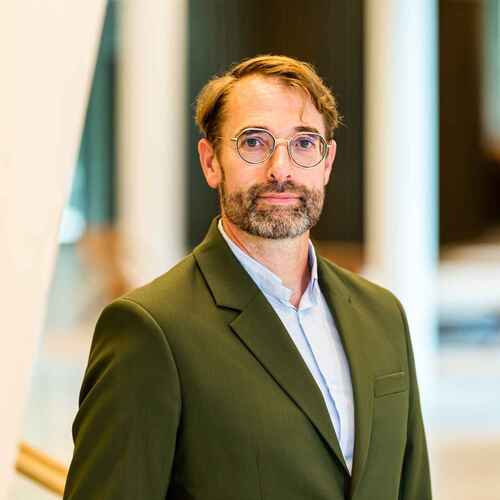 1. Sustainability demands radical re-imagination, not minor reforms.Hans Stegeman, Chief Economist, Triodos Bank
1. Sustainability demands radical re-imagination, not minor reforms.Hans Stegeman, Chief Economist, Triodos Bank

During the panel, Hans Stegeman challenged the notion that sustainability could be achieved through marginal adjustments. True transition, he argued, requires a radical re-examination of the foundational structures of economics, governance, and business, not merely innovating within their constraints.
"We must always question the system, not just optimise within it. Only if we address the underlying causes of our system can we have a real transition."
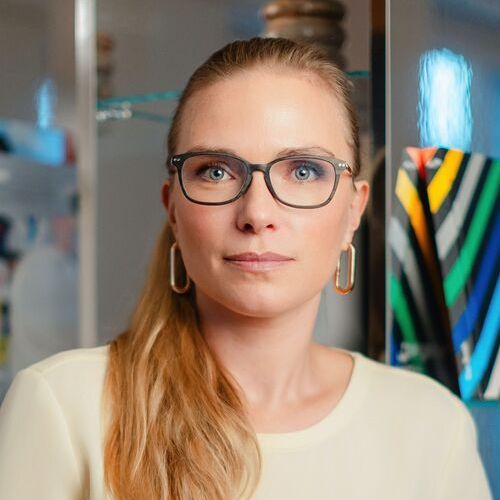 2. Change requires emotional intelligence as much as technical skill.Tatjana Kiel, CEO, Klitschko Ventures / We Are All Ukrainians
2. Change requires emotional intelligence as much as technical skill.Tatjana Kiel, CEO, Klitschko Ventures / We Are All Ukrainians

Tatjana Kiel redefined leadership for the transition era: Emotional resilience, empathy, and courage must be treated as core capabilities, not optional attributes. She stressed the power of role models who live these values authentically, especially during moments of societal fracture and uncertainty.
"That is what we need to think about. How can we learn more about us, about soft skills, about who we really are and what values are driving us. We are talking about bravery and resistance. These are soft skills."
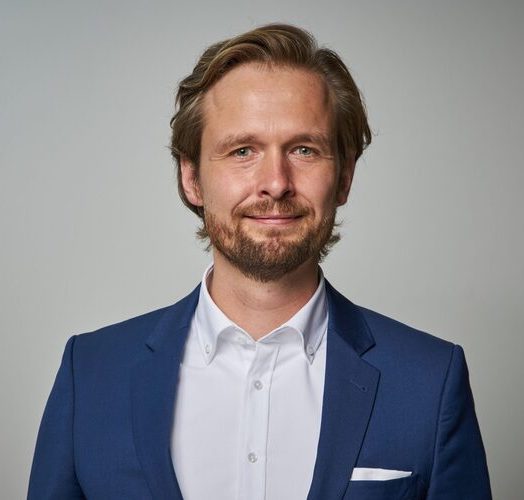 3. Without diversity, systems thinking is incomplete.Daniel Nowack, Head of Social Innovation, World Economic Forum
3. Without diversity, systems thinking is incomplete.Daniel Nowack, Head of Social Innovation, World Economic Forum

Daniel Nowack emphasised that inclusive representation is essential for genuine systems innovation. Without diverse perspectives, institutions risk misdiagnosing systemic problems and designing incomplete or unjust solutions.
"If you don’t have diverse representation, it is very hard to get to the root causes. Institutions must design for access, so that systems innovation is not only an idea but a lived reality in the classroom."
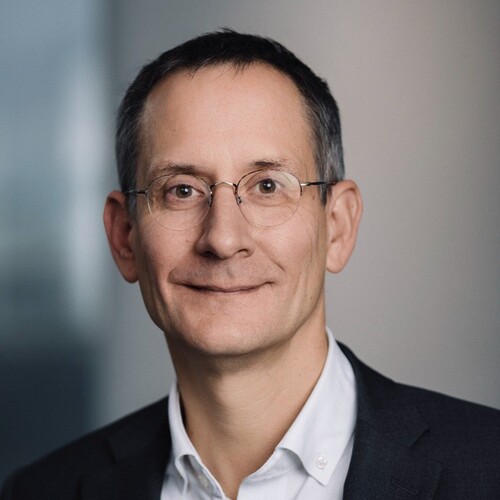 4. Empowerment is the foundation of real transformation.Emmanuel Normant, VP Sustainable Development, Saint-Gobain
4. Empowerment is the foundation of real transformation.Emmanuel Normant, VP Sustainable Development, Saint-Gobain

Emmanuel Normant explained that organisational change fails not because people oppose it, but because they often feel disempowered or unsupported. Institutions must therefore equip every individual to act, embedding agency at every level of their systems.
"Often, people are not resistant. They are not against change—they just don't feel legitimate to act. It’s about going in-depth into all the parts of the company and making sure everyone understands their role."
Unveiling Sustainability Initiatives at ESCP
There was a palpable energy as Prof. Gorgi Krlev, who was recently appointed ESCP’s Associate Dean of Sustainability, took to the stage to share the next chapter in sustainability at ESCP. Speaking with clarity and conviction, he outlined how ESCP’s sustainability journey is about fundamentally rethinking education, governance, and culture.
Through the ESCP Sustainability Institute, the RESET Research Centre, and specialised programmes like the MSc in International Sustainability Management, ESCP integrates cutting-edge research and education to drive systemic change.
Although sustainability is already taught to 100% of students, Krlev stressed that it must be the starting point for how everything is taught at ESCP moving forward, from finance to marketing to leadership. "How can you teach finance from a sustainability perspective? How can you rethink supply chains, or leadership itself?"
This ambition to embed sustainability at the core of the School’s DNA framed two key initiatives highlighted during the session.
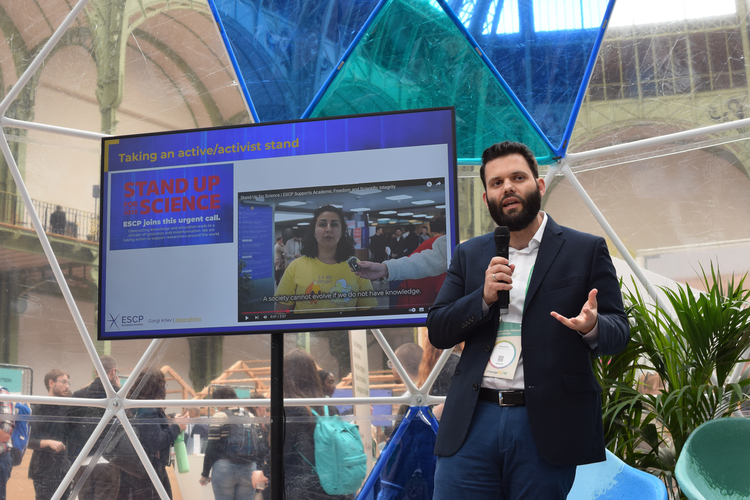 Prof. Gorgi Krlev, Associate Dean of Sustainability at ESCP, introduces the School’s next chapter of sustainability transformation during ChangeNOW 2025
Prof. Gorgi Krlev, Associate Dean of Sustainability at ESCP, introduces the School’s next chapter of sustainability transformation during ChangeNOW 2025Supporting #StandUpForScience
Krlev highlighted ESCP’s alignment with the global movement #StandUpForScience, dedicated to defending scientific integrity, academic freedom, and evidence-based leadership at a time when these pillars are increasingly under threat. "We must not only produce knowledge, we must defend it."
Rethinking Internal Systems
Krlev also spotlighted the redesign of ESCP’s merchandise operations as a tangible example of values put into practice. Moving to a pre-order-only model with sustainable sourcing and reduced overproduction, the School aims to align even small, everyday decisions with larger systemic goals. "How we manage something as small as our merchandise reflects how seriously we take larger systemic change."
More @ ChangeNOW
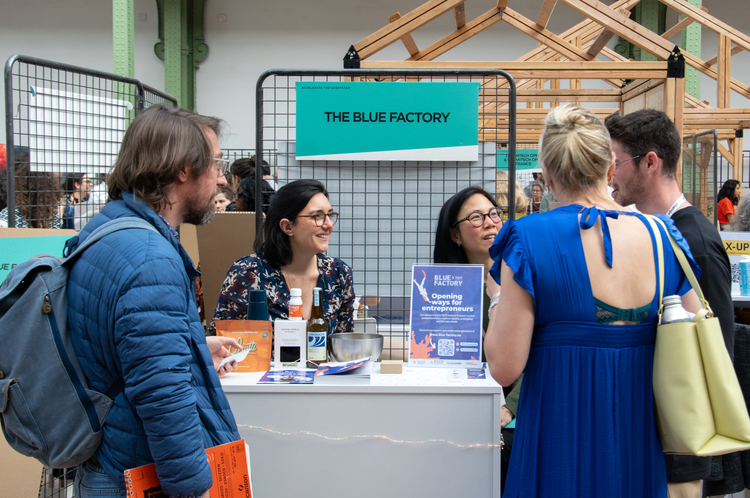
The Blue Factory Booth
Throughout the three days of ChangeNOW, ESCP’s Blue Factory — the School’s European incubator for entrepreneurial innovation — hosted a booth in the Accelerate Zone. There, alumni start-up founders showcased their sustainable ventures, demonstrating how entrepreneurship can drive real-world impact.
“At Blue Factory, we believe that every entrepreneur we support has the potential to create something that not only thrives today but stands the test of time, addressing the needs of future generations.
That’s why we’re proud to help entrepreneurs from all kinds of sectors come together, share their expertise, and go through a creation process that focuses on long-term value and impact.”
- Maëva Tordo, Head of Blue Factory
“It was such a pleasure to showcase some of our entrepreneurs at ChangeNOW, like Laura Govaert, founder of Ofrutti, Mathilde Houset founder of Smoon, Justine Lecallier founder of Circul'Egg, Pierre Tucoulat founder of Zeste, and even more to discover here who truly embody this sustainable mindset in everything they do.”
- Manuella Ndoung, Program Manager at Blue Factory Paris
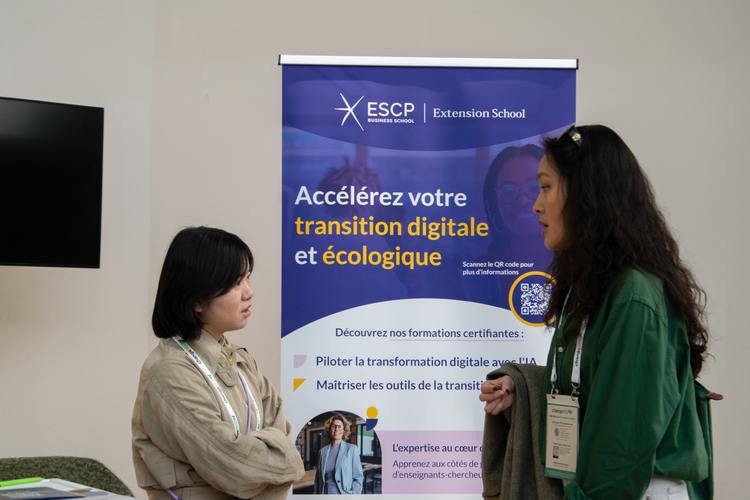
The ESCP Extension School
On the final day, ESCP held a Reverse Pitch session to introduce our Extension School, the School’s new programmes for continuing education focused on sustainability, innovation, and management transformation, led by Guidiche Makanda. Rather than pitching ideas to investors, ESCP flipped the dynamic: presenting its vision for lifelong learning to potential partners, collaborators, and future learners.
A call to action
In many ways, ESCP’s message at ChangeNOW echoed the call issued at the summit’s opening: that meaningful transition demands the convergence of science, societies, and governments. As Prof. Gorgi Krlev made clear, reshaping business education is not about isolated reforms, but about building new foundations—foundations that connect scientific integrity, systemic redesign, and collective action.
We aim to engage in this curricular revolution, having a more practical kind of education, and engaging more with the sciences. We need a cross-disciplinary approach. And we need to enable the students and executives that we're dealing with to be the changemakers in their organisations.
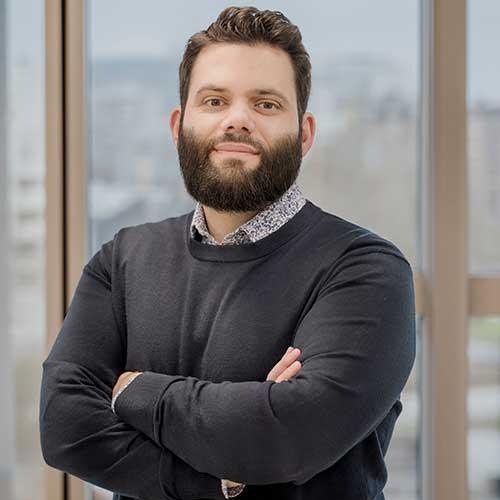 Prof. Gorgi Krlev
Prof. Gorgi KrlevAssociate Dean of Sustainability
ESCP Business School
Campuses
